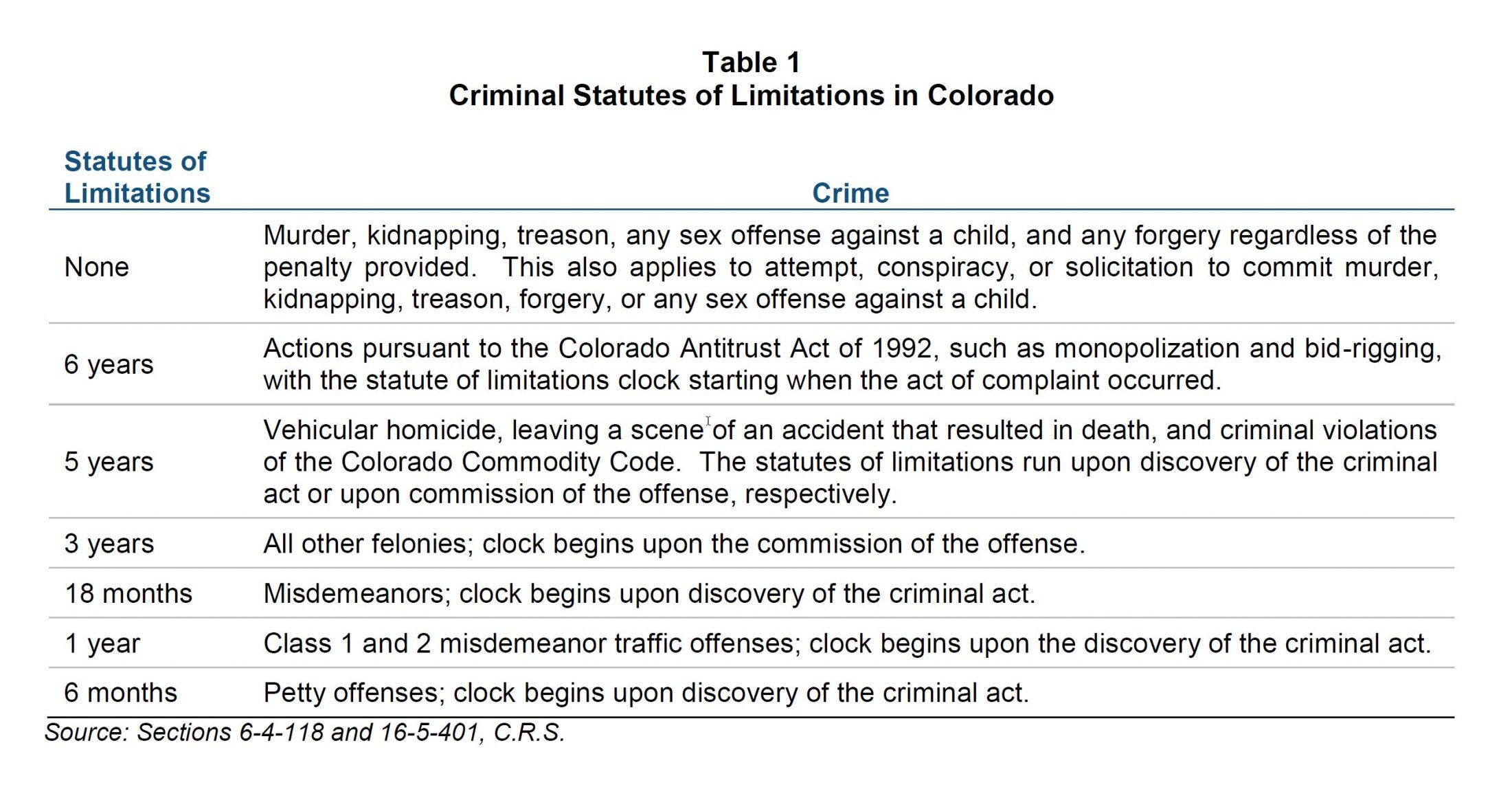The Right of a Colorado District Attorney to Add New Charges

By H. Michael Steinberg Colorado Criminal Defense Lawyer
Introduction – The Power to Add Charges and the Right to Due Process
Tucked away in the Colorado Rules of Criminal Procedure is a small subsection of Rule 7. The section is Section (e) and it reads as follows:
Crim P Rule 7 (e) Amendment of Information.
The court may permit an information to be amended as to form or substance at any time prior to trial;
the court may permit it to be amended as to form at any time before the verdict or finding if no additional or different offense is charged and if substantial rights of the defendant are not prejudiced.
While short – this section has impacted more defendants in the Colorado criminal justice system in my opinion than almost any other rule.
The Typical Scenarios for the Filing of Criminal Charges in Colorado
At the felony level, criminal charging decisions are made by the District Attorney (DA). The DA comprehensively reviews the police investigation filed with the DA’s office and then decides what charges, if any, to file. On rare occasions, additional charges may be filed after that first review and the initial charging decisions are made.
At the misdemeanor and traffic level, the initial charging of a case is a very different thing. Initially charging decisions at this level are mostly left to the discretion of the police. When a police officer “charges” a case, either at the time of an arrest (or if the case is created by summons in lieu of arrest – commonly called a “ticket”), it is the police officer that makes the initial filing decision.
When the Deputy District Attorney (DA) or, if the case is filed at the municipal (city) court level, the Municipal Prosecutor later reviews the officer’s charging decision, the charges can change.
This is the confusing part for those being prosecuted often for the first time in their lives. Their understandable confusion arises when they rightfully believe they have been charged with a certain crime or crimes, and later, the government decides to add one or more new charges to the case.
Absolute Power
Colorado’s prosecutors have many duties and responsibilities, but their blanket authority to file criminal charges is at the very heart of their authority and control over the entire criminal justice system.
The decision of whether to charge an individual – what that charge should be – even at the misdemeanor-traffic level – does not end with the police officer making the arrest.
The decision of whether and how to prosecute a case can be complex. Whether law enforcement has gathered sufficient evidence through the investigation to prove the charge beyond a reasonable doubt at trial is a very different and a much higher standard of proof for filing of charges (probable cause).
This article addresses the power of the prosecutor to add charges after the initial charging decision has been made.
An “Imbalance of Power”
In a recent article, I wrote about the inherent imbalance of power in the Colorado criminal justice system. A DA’s decision to file charges, dismiss charges, add charges, and the determination of what punishment to seek in a Colorado criminal case – is a nearly unreviewable decision.
The Colorado Court’s of Appeal have actually referred to the prosecution’s charging decisions as “particularly ill-suited to judicial review”
Of all the calls I receive from those being prosecuted under Colorado criminal law, one of the most difficult to explain to the caller, is the person, for example, who asks the question:
‘They arrested me for misdemeanor DUI – how can they now charge me with the felony of vehicular assault?’
The answer is Colorado Rule of Criminal Procedure – Rule 7 (e).
Crim.P. 7(e) provides for amendment of an information “as to form or substance at any time prior to trial….”
It is construed “liberally.”
People v. Bowen, 658 P.2d 269 (Colo.1983).
While the police decide the initial charges in misdemeanor cases, those charges are mere “recommendations” to the DA. The charging decisions made by the police are not binding on the prosecutor. After reviewing the evidence, if a District Attorney believes additional charges can be proven at trial, new charges can be added, and existing charges dismissed.
Colorado Judges Determine Whether to Permit the Filing of New Charges
The purpose of a criminal complaint (the document that contains the charges – the “charging document”) is to advise the Defendant:
Of the nature of the charges,
To enable him or her to prepare a defense, and
To protect him or her from further prosecution for the same offense.
The Trial Court( the Judge) decides whether to allow the charging document to be amended (changed).
People v. Thomas, 832 P.2d 990 (Colo. App. 1991).
There Are Some Limits on the Power to File Charges
While there are few limits on the DA’s power to charge, there are some restraints.
Double Jeopardy
One of the restraints on a prosecutor’s power to charge is the prohibition in the Constitution against double jeopardy. The State cannot charge a crime for which the Defendant was already convicted or acquitted.
Retaliatory Prosecution
While almost impossible to prove, a criminal charge cannot be “retaliatory. ” It is unlawful for a District Attorney to file charges as pure retaliation.
A retaliatory prosecution can loosely be defined as a situation where a person is arrested or charged with a crime because the person exercised his or her rights. Most often means that a person is charged with a crime for exercising a constitutional right such as the exercise of the First Amendment right to free speech rights (e.g. criticizing the police or other government officials, public protests, or “going to the press”).
Prosecuting Based on Unconstitutional Discrimination
A Colorado District Attorney cannot file criminal charges based on illegal discrimination.
While there is no system of “checks and balances” within a DA’s office to make certain that the decision to file charges was not based on discrimination against a protected class, (age, race, or gender bias), nevertheless if charges are filed for reasons that amount to unconstitutional acts of discrimination, dismissal of the case and a federal civil rights claim may be possible.
The writer is not an expert in this field, but it is well known to criminal defense lawyers that it is very difficult to establish standing (the right to bring the lawsuit) to bring this kind of lawsuit. If standing is established, proving intentional discrimination is also very difficult. It is usually unintentional, unconscious bias that is at work in a filing decision and not a purposeful discriminatory practice. The result is the same.
Statutes of Limitations Can Bar the Filing Criminal Charges
Colorado statutes of limitations specify the maximum length of time allowed for a prosecutor to initiate legal proceedings. These statutes are ‘hard and fast” time limits after which a District Attorney can no longer file a criminal complaint and information. After the specific time limit passes, a target of an investigation will not be subject to prosecution.
The policy underlying such time limits is simple – the passage of time directly impacts the ability of the accused to defend a criminal charge. Witnesses leave the state, disappear, or may even pass away. Evidence is no longer available or is weakened, memories fail, and the capacity to mount a defense is degraded.
The passage of time actually impacts both the DA and the Defendant. With few exceptions (murder, sexual assault on a child, forgery, etc) there is a statute of limitations for nearly all crimes.
 (Please click on image to enlarge)
(Please click on image to enlarge)
Wrongful or Malicious Prosecution
A final category of unlawful prosecutions is a wrongful or malicious prosecution. This kind of criminal case is an abuse of the court process and constitutes a violation of an individual’s right to due process of law. It is a criminal case filed for a purpose other than that of bringing the alleged offender to justice.
The typical scenario to build a case for a wrongful or malicious prosecution requires a number of factors that must be assembled “to make the case.”
1. The case was resolved in the Defendant’s favor – usually, this means a Judge dismissed the charges and not merely a verdict of not guilty.
2. The DA was personally and actively involved in the case – (filed the charges, handled the case, and/or headed up any other attorneys working on the case.
3. At the time of filing the charges there wasn’t the minimum quantum of evidence of probable cause which is required and necessary to file the criminal charges.
4. The District Attorney filed charges or pursued the case for improper or an unlawful purpose. The filing of charges wasn’t based, for example, on a mistake or bad information. They were filed with no adequate basis and with “malicious intent.”
Malicious intent can include the filing of charges that are intended to:
Harass the Defendant;
Destroy the Defendant’s reputation;
Distort and redirect blame on the Defendant and not the actual wrongdoer.
A Civil Lawsuit for Damages May Lie
While there is a public policy that underlies a lawsuit for malicious prosecution that policy must compete against the much broader policy that favors the right of law enforcement officers, judicial officers, and private citizens to pursue justice without fear of reprisal.
Under the very rare circumstances described above, Federal and Constitutional law provide the right to file a civil lawsuit against ANY federal, state, or local official er, then citizen under the venerable law – 42 U.S.C. § 1983.
Last-Minute Amendments to the Charges Close To the Trial Date
While adding or otherwise amending charges close to a trial date are not favored by the trial courts of Colorado, they are usually granted. The remedy offered to the defense is almost always a continuance of the trial date within speedy trial.
The length of that continuance will depend on the change in the charges.
A Defendant’s claim of prejudice or surprise is almost always met by the Judge with an offer for more time to properly prepare to defend against the change. In fact, a Defendant is required to request a continuance, and must make a “showing of prejudice, misunderstanding, or surprise by reason of the time at which the amendment was made.”
People v. Thomas, 832 P.2d 990 (Colo. App. 1991).
Changes to the Charges at Trial
At trial, when the evidence is in, no substantive changes to the charges are allowed.
“An accused person is entitled to be tried on the specific charge contained in the information, and after a plea of not guilty has been entered and the state has submitted all the evidence which the prosecutor desires to present to sustain that charge, no amendment can be made thereto which changes entirely the substance of the crime which defendant is alleged to have committed.”
People v. Jefferson, 934 P.2d 870 (Colo. App. 1996).
If a District Attorney attempts to add a different or more serious offense than the original charge at trial, that amendment will not be allowed.
On the other hand, if the change to the charge is not a new charge but only an amendment of the “form” of the existing charge and the change “does not go to the essence of the charge,” then it is not considered a “substantive” change is and it may be permitted at any time prior to verdict as a change as to form unless the Defendant can show some harm or prejudice.
People v. Al-Yousif, 206 P.3d 824 (Colo. App. 2006).
An example of this kind of change would be an error where the Defendant’s name was accidentally transposed in the charging document.
Summary and Conclusion – The Right of a Colorado District Attorney to Add New Charges
There is no question that Colorado’s prosecutors are the most powerful officials in the state’s criminal justice system. Using the tools of charging and plea bargaining, DAs control the direction and outcome of all criminal cases. While a prosecutor’s filing decisions are totally discretionary and virtually unreviewable, there are limits to that power.
This short article is intended to help the reader understand when and how Colorado’s Prosecutors can add charges, which at times may be an attempt to intimidate and further control the progress and direction of a criminal case.
Knowing when and how charges can be added lessens the impact of those changes and provides more information that may assist those charged with crimes in Colorado to make intelligent decisions regarding the options, such as taking the case to trial, available in their case.
“A person charged with a crime requires the guiding hand of counsel at every step in the proceedings against him. Without it, though he be not guilty, he faces the danger of conviction because he does not know how to establish his innocence.”
United States Supreme Court – Powell v. Alabama, 287 U.S. 45, 69 (1932)
If you found any information I have provided on this web page article helpful please share it with others over social media so they may also find it. Thank you.
Never stop fighting – never stop believing in yourself and your right to due process of law.
 ABOUT THE AUTHOR: H. Michael Steinberg – Email The Author at hmsteinberg@hotmail.com – A Denver Colorado Criminal Defense Lawyer – or call his office at 303-627-7777 during business hours – or call his cell if you cannot wait and need his immediate assistance – 720-220-227. Attorney H. Michael Steinberg is passionate about criminal defense. His extensive knowledge of Colorado Criminal Law and his 42 plus years of experience in the courtrooms of Colorado may give him the edge you need to properly defend your case.
ABOUT THE AUTHOR: H. Michael Steinberg – Email The Author at hmsteinberg@hotmail.com – A Denver Colorado Criminal Defense Lawyer – or call his office at 303-627-7777 during business hours – or call his cell if you cannot wait and need his immediate assistance – 720-220-227. Attorney H. Michael Steinberg is passionate about criminal defense. His extensive knowledge of Colorado Criminal Law and his 42 plus years of experience in the courtrooms of Colorado may give him the edge you need to properly defend your case.
As a former career prosecutor for Arapahoe and Douglas Counties, he has a unique understanding of the criminal justice system that works to his clients’ advantage to better protect their rights. H. Michael also knows how to talk clearly and very directly to his clients, his adversaries, and to the Court. He uses his life experience, common sense, and straight talk to help clients fully understand and make decisions regarding their options.
If you are ready to talk, H. Michael stands ready to help.
 Colorado Criminal Lawyer Blog
Colorado Criminal Lawyer Blog

